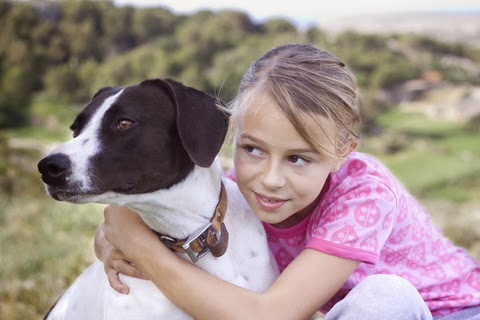In our dog-friendly training secrets for enlightened dog lovers - Chief Cheery Officer (CCO) Kiyo recommends that we pay lots of attention to understanding if a dog is stressed. There's 'good' and 'bad' stress. 'Good' stress prompts a dog to continue learning, 'bad' stress causes a dog to shut down. Just because a dog is still and seems obedient, it doesn't mean that it's comfortable. So read the signs carefully.
Dog Stress Signal
Alert #2
An important part of being a
good dog owner is being able to read how our dog is responding to us or to
being in a certain situation. That means that we need to be able to identify
our dog’s stress signals – they tell us if our dog is still enjoying itself,
it’s merely tolerating what’s happening, or it has had enough.
We love to hug our dogs, but
do they really enjoy being hugged? Often they don’t, at least not right from
the start. With positive, rewards-based, force-free training methods, we can gradually
help our canine buddies be more comfortable about being hugged. In this photo,
the dog is displaying at least 2 stress signals – its head is turned away, and
it’s stress yawning. Again, the dog is just tolerating being hugged – it’s not
enjoying itself at this moment.
 |
| Photo from Dreamstime |
When your dog starts
displaying stress signals, do something to improve the situation, or end the
interaction and get your dog out of the situation. If you’re not sure of what to do, please
consult a qualified trainer or behaviourist to help you and your dog.


